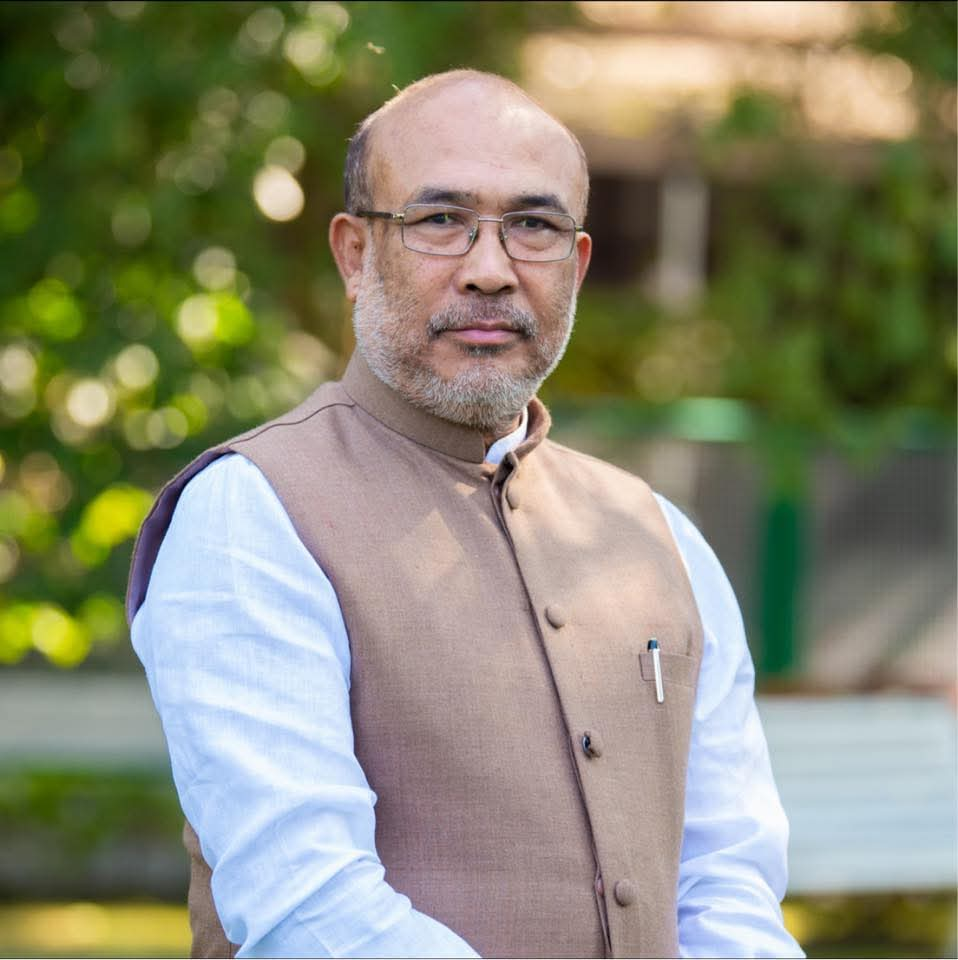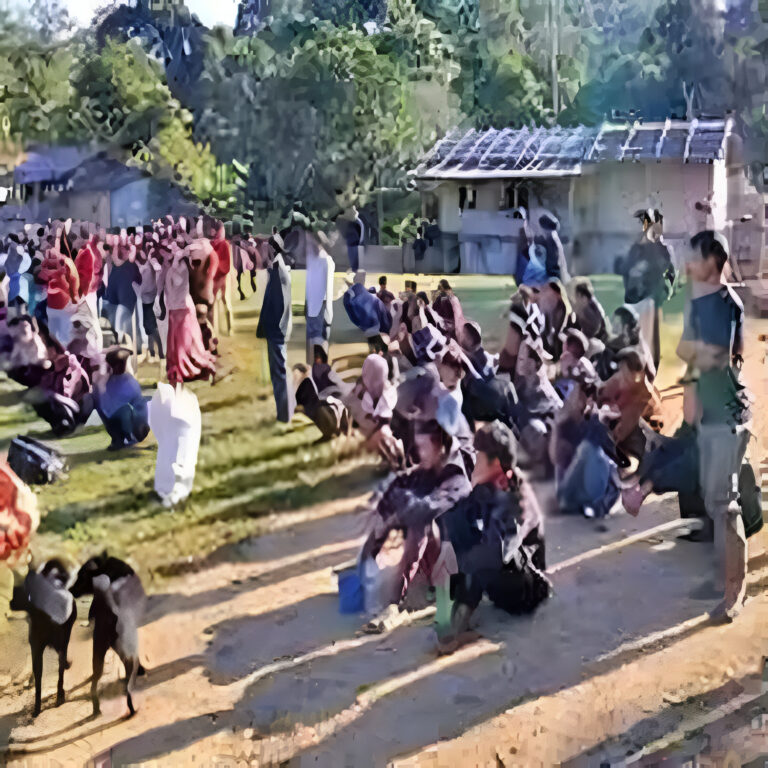Former Manipur CM Biren Singh Accuses Congress of Rejecting ILP Proposal in 2012
In a recent statement, former Manipur Chief Minister N. Biren Singh criticized the Congress-led UPA government for dismissing the proposal to implement the Inner Line Permit (ILP) system in Manipur during a 2012 Parliament session. He alleged that this rejection demonstrated a lack of concern for Manipur’s unique historical and cultural identity. Singh commended the BJP-led government under Prime Minister Narendra Modi and Home Minister Amit Shah for addressing this long-standing demand by introducing the ILP in Manipur in 2019.
Understanding the Inner Line Permit (ILP) System
The Inner Line Permit (ILP) is a travel document required for non-residents to enter certain protected areas within India. Established under the Bengal Eastern Frontier Regulation of 1873, the ILP aims to safeguard the indigenous cultures and traditions of the northeastern states by regulating the influx of outsiders. Historically, states like Arunachal Pradesh, Nagaland, and Mizoram have operated under the ILP system to preserve their unique identities.The Indian Express
The 2012 Proposal and Its Rejection
In 2012, Dr. Thokchom Meinya, then a Member of Parliament from Manipur, raised the issue of implementing the ILP system in the state during a parliamentary session. The proposal sought to extend the protective measures of the ILP to Manipur, aiming to address concerns over demographic changes and the preservation of indigenous cultures. However, the Congress-led UPA government declined this request. Mullappaly Ramachandran, the then Minister of State for Home Affairs, stated that the ILP system, as per the existing regulations, applied only to Arunachal Pradesh, Mizoram, and Nagaland, and could not be extended to Manipur. The Indian Community+1India Today+1
Biren Singh’s Criticism of Congress
Biren Singh, who served as the Chief Minister of Manipur, has been vocal about his dissatisfaction with the Congress party’s handling of the ILP issue. He described the government’s response in 2012 as a “cold bureaucratic dismissal,” accusing the Congress of neglecting the state’s legitimate demands and failing to protect its indigenous population. Singh alleged that the Congress’s inaction amounted to “blatant appeasement of illegal immigrants,” thereby undermining the interests of Manipur’s native communities. Telegraph India+2India Today NE+2India Today+2
The BJP’s Role in Implementing ILP in Manipur
In contrast to the Congress’s stance, the Bharatiya Janata Party (BJP) has taken significant steps to address Manipur’s demand for the ILP system. Under the leadership of Prime Minister Narendra Modi and Home Minister Amit Shah, the ILP was extended to Manipur in 2019. This move was widely appreciated by various sections of Manipur’s society, as it was seen as a measure to protect the state’s indigenous cultures and address concerns over demographic changes. The Indian Express
Historical Context of ILP in Manipur
The demand for the ILP system in Manipur has deep historical roots. During British colonial rule, the ILP was enforced in certain northeastern regions to control the movement of people and protect local cultures. However, Manipur was not included in this system. Post-independence, as concerns over the influx of outsiders grew, various civil society organizations and local groups in Manipur began advocating for the introduction of the ILP to preserve the state’s demographic balance and cultural heritage.
Impact of ILP Implementation in Manipur
The introduction of the ILP system in Manipur in 2019 has had several implications:
- Cultural Preservation: By regulating the entry of non-residents, the ILP helps in preserving the indigenous cultures and traditions of Manipur.
- Demographic Balance: The system aims to maintain the demographic balance by controlling the influx of outsiders, addressing concerns over potential marginalization of local communities.
- Economic Considerations: While the ILP restricts free movement, it also poses challenges for economic activities, particularly in sectors reliant on tourism and external trade. Balancing cultural preservation with economic development remains a critical consideration.
Political Debates Surrounding ILP
The implementation of the ILP in Manipur has been a subject of intense political debate:
- Support and Opposition: While many local groups and political parties supported the introduction of the ILP, some sections expressed concerns over its potential impact on economic activities and inter-state relations.
- Congress’s Position: The Congress party, which previously opposed the extension of the ILP to Manipur, faced criticism for its earlier stance. The party’s current position on the matter reflects a complex interplay of political strategies and regional considerations.
- BJP’s Advocacy: The BJP leveraged the implementation of the ILP as a fulfillment of its commitment to safeguarding Manipur’s indigenous interests, strengthening its political foothold in the region.The Indian Express
Civil Society’s Role in ILP Advocacy
Civil society organizations in Manipur have been instrumental in advocating for the ILP:
- Public Mobilization: Various groups organized protests, awareness campaigns, and dialogues to press for the implementation of the ILP, highlighting its importance for cultural and demographic preservation.
- Engagement with Authorities: These organizations engaged with state and central authorities, presenting data and arguments to support their demand for the ILP, showcasing the democratic process in action.
Challenges and Criticisms of ILP Implementation
Despite its intended benefits, the ILP system in Manipur faces several challenges:The Indian Express
- Administrative Hurdles: Implementing the ILP requires robust administrative mechanisms to ensure effective regulation without causing inconvenience to genuine travelers and businesses.
- Economic Impact: There are concerns that the ILP might deter investment and tourism, potentially affecting the state’s economic growth. Balancing regulation with openness remains a delicate task.
Conclusion: Embracing a New Political Paradigm
The allegations by former Manipur CM Biren regarding the 2012 rejection of the Indigenous Legislative Proposal have opened up a critical conversation about representation, justice, and the future of governance in the state. This controversy is more than just a political skirmish—it is a call to reimagine how policies are crafted, whose voices are prioritized, and how historical grievances can be transformed into opportunities for lasting change.
As we reflect on the past and look to the future, one thing is clear: inclusive governance is not merely a lofty ideal, but a practical necessity for a state as diverse and vibrant as Manipur. Whether through revisiting the ILP, implementing comprehensive reforms, or simply fostering a culture of open dialogue, the path forward must be one that unites rather than divides, one that honors the legacy of the past while boldly embracing the possibilities of the future.
By addressing the challenges head-on and ensuring that every community is given its due voice, Manipur can set a precedent for the rest of the nation—a model of governance that is both democratic and deeply inclusive. The road may be long and fraught with challenges, but the promise of a more equitable tomorrow is a goal worth striving for.
FAQs
- What exactly is the Indigenous Legislative Proposal (ILP) discussed in the article?
The ILP was a comprehensive proposal introduced in 2012, aimed at ensuring better political representation, addressing socio-economic disparities, and preserving the cultural heritage of Manipur’s indigenous communities. - Why does former CM Biren accuse the Congress party of rejecting the ILP?
Biren alleges that the Congress party, for political and strategic reasons, deliberately sidelined the ILP, thereby neglecting the long-term interests and rights of indigenous communities in Manipur. - How might the rejection of the ILP have impacted indigenous communities in Manipur?
The alleged rejection likely contributed to the marginalization and underrepresentation of indigenous groups, affecting their access to quality public services, economic opportunities, and the preservation of their cultural identity. - What are the potential political implications of revisiting the ILP controversy today?
Revisiting the ILP could lead to political realignments, more inclusive governance, and renewed efforts to address historical grievances. It may also influence electoral strategies and the overall political narrative in Manipur. - How can modern technology help in implementing policies like the ILP?
Modern technology—such as digital data collection, real-time citizen engagement platforms, and advanced analytics—can streamline the policy-making process, ensure transparency, and enable continuous updates that reflect the actual needs of the people.





